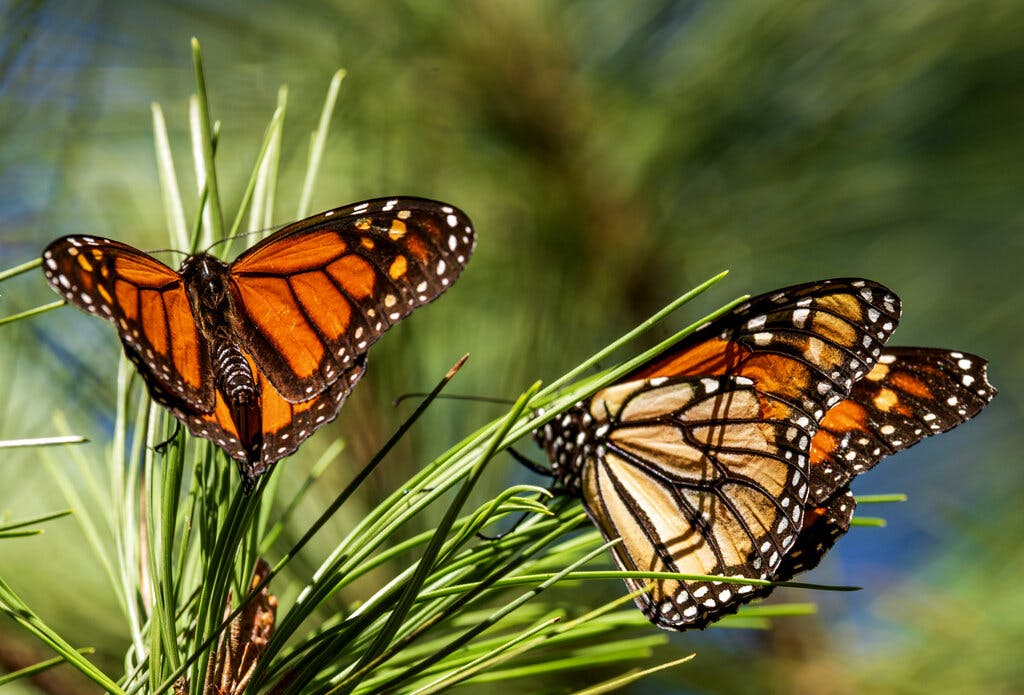Future of Border Wall in Doubt After Agency Declares Milkweed an Endangered Species
Texas’s AG called the possibility of adding prostrate milkweed to the endangered species list an ‘absurd effort to paralyze Texas’ border control.’

The addition of milkweed to a federally protected list of endangered species is set to hinder the construction of a wall along the southern border.
On Monday, the U.S. Fish and Wildlife Service declared prostrate milkweed an endangered species. Under federal law, that means the land it grows on would be designated as “a critical habitat,” with environmental protections that make public projects considerably more cumbersome to undertake.
Environmentalists say the designation will protect the monarch butterfly, whose caterpillars feed exclusively on the plant. According to a 2015 study by the Department of the Interior, the monarch population decreased by a billion between 1990 and 2014. The agency attributed the decline in population to the eradication of natural habitats and to insecticides being sprayed on milkweed.
The move, though, has drawn the ire of Texas’s attorney general, Warren “Ken” Paxton. Along with Governor Abbott, Mr. Paxton is a proponent of sealing the southern border to prevent migrants from crossing into Texas from Mexico.
President Trump famously staked his 2016 campaign on a promise to “build the wall and make Mexico pay for it.” The Trump administration constructed and fortified more than 450 miles of wall — about 50 miles of which was newly constructed.
President Biden put a moratorium on the wall’s construction his first day in office, and offered only lukewarm support for plugging existing gaps in it. Since then, Mr. Abbott has taken it upon himself to finish the work that Mr. Trump started.
The Lone Star State has so far completed about 2 miles worth of wall and has contracts for the construction of 35 more miles, according to the Texas Tribune. The state recently returned to building after a pause to negotiate with private landowners along the border.
The prostrate milkweed is found only within nine miles of the southern border — meaning much of the land on which a border wall would be built now finds itself as part of its critical habitat. Federal law prohibits any public projects that could “destroy or adversely modify” the species’ existence in the designated lot of land.
Texas Republicans have expressed concern that the designation would prevent the construction of the border wall, but the Fish and Wildlife Service has rejected the notion that it would hinder border protection.
In a letter to the agency, Mr. Paxton called the possibility of adding prostrate milkweed to the endangered species list an “absurd effort to paralyze Texas’s border control.” Mr. Paxton warned about the consequences for “putting a plant before the lives of Texans.”
The attorney general also questioned the soundness of the rule as an environmental protection measure, suggesting that unmitigated migration could prove worse for milkweed. More than 150,000 migrants were apprehended by Border Patrol agents at the southern border in January.
“The prospect of thousands of migrants and undocumented immigrants trampling the vegetation and plant life while journeying north through Zapata and Starr Counties each year is no doubt potentially harmful to the sensitive environment surrounding prostrate milkweed,” Mr. Paxton wrote then — to no avail.
The Fish and Wildlife Service, however, contends that the designation of land as critical habitat “will not preclude border wall construction or security operations.”
“We will continue to collaborate with DHS and CBP to ensure border security operations can still occur in areas designated as critical habitat for prostrate milkweed,” the agency said on Monday.

